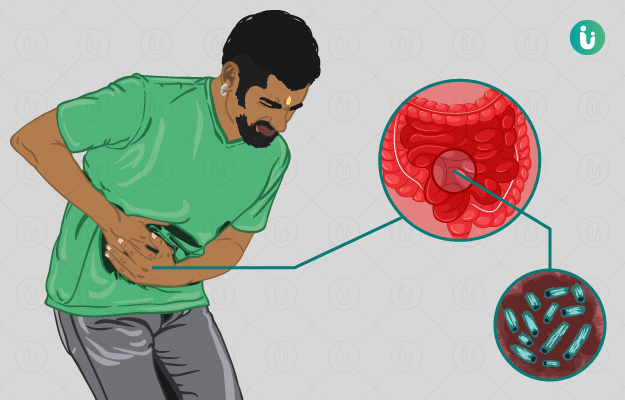Anti TTG This test is used to see if you have celiac disease. Celiac disease is an autoimmune disorder. This means your body attacks itself. This test is also used to see how well people with the condition are doing. It is one of several blood tests that may be used to help diagnose celiac disease.
Tissue transglutaminase is an enzyme that fixes damage in your body. People with celiac disease often make antibodies that attack this enzyme. These are called anti-tissue transglutaminase antibodies. A blood test that shows higher levels of anti-tissue transglutaminase antibodies can help your healthcare provider figure out if you have celiac disease.
Does this test have other names?
IgA anti-tissue transglutaminase, IgA Anti-tTG, celiac disease testing, celiac disease antibody testing, tTG-IgA test
What Is a Tissue Transglutaminase IgA (tTG-IgA) Test?
A tissue transglutaminase IgA (tTg-IgA) test is used to help doctors diagnose celiac disease. In this autoimmune disorder, the immune system mistakenly thinks that gluten — a protein in wheat, barley, rye, and oats — is a foreign invader. It makes antibodies that attack an enzyme in the intestines called tissue transglutaminase (tTG). Antibodies (also called immunoglobulins) are proteins that recognize and get rid of germs.
Why Are tTG-IgA Tests Done?
Doctors may order a tTG-IgA test if a child has symptoms of celiac disease, such as poor growth, belly pain, constipation, vomiting, diarrhea, or rashes.
The test also might be done if a child has a condition that makes celiac disease more likely (such as type 1 diabetes), thyroid disease, or a family member with celiac disease.
How Do We Prepare for a tTG-IgA Test?
For the test to be accurate, your child should be on a gluten-containing diet until the test is done.
Why do I need this test?
If you have celiac disease, you are allergic to gluten. Gluten is the protein found in wheat, rye, and barley. With celiac disease, your body attacks the lining of the small bowel, making it less able to absorb nutrients. Gluten sensitivity can also cause:
- Pain in the abdomen
- Low blood count (anemia)
- Tiredness
- Muscle and joint pain
- Gas
- Diarrhea
- Vomiting
- Weight loss
- Malnutrition
Celiac disease:
Most attention to anti-transglutaminase antibodies is given concerning celiac disease. A recent study of children published in 2007 demonstrated that the level of ATA correlates with the scalar Marsh score for the disease in the same patient.
High levels (titers) of ATA are found in almost all instances of celiac disease. Given the association of ATA with celiac disease and the prevalence of the latter, it is estimated that ~1% of the population have potentially pathogenic levels of ATA
What do my test results mean?
Test results may vary depending on your age, gender, health history, the method used for the test, and other things. Your test results may not mean you have a problem. Ask your healthcare provider what your test results mean for you.
Keep in mind that no 1 test can say for sure that you have celiac disease. Your healthcare provider will use other things to help confirm the diagnosis.
The higher the levels of anti-tissue transglutaminase antibodies in your blood, the more likely it is that you have it or a related disorder. Younger children are an exception to this rule. A test may come back negative even if the child has celiac disease. But other tests can give a proper diagnosis.
How is this test done?
The test is done with a blood sample. A needle is used to draw blood from a vein in your arm or hand.
Does this test any risks?
Having a blood test with a needle carries some risks. These include bleeding, infection, bruising, and feeling lightheaded. When the needle pricks your arm or hand, you may feel a slight sting or pain. Afterward, the site may be sore.




[…] is a specially selected medium that can differentiate between Lactose Fermenter and Non Lactose Fermenter types of bacteria. Bacteria can grow well on […]
[…] of two parts, One part is fluid and the other part is solid. Bone marrow is a fatty and spongy tissue present inside the large bones. The most important cells of our blood such as platelets, red blood cells […]
Excellent website. Lots of helpful information here. I am sending it to some friends ans additionally sharing in delicious. And certainly, thanks in your sweat!
hello!,I really like your writing so much! percentage we communicate extra approximately your article on AOL? I need a specialist in this area to unravel my problem. Maybe that’s you! Having a look ahead to see you.
[…] Celiac Disease Blood Tests: Celiac disease is typically screened using blood tests that measure specific antibodies. The most common tests include: […]
[…] of two parts, One part is fluid and the other part is solid. Bone marrow is a fatty and spongy tissue present inside large bones. The most important cells of our blood such as platelets, red blood cells, and […]